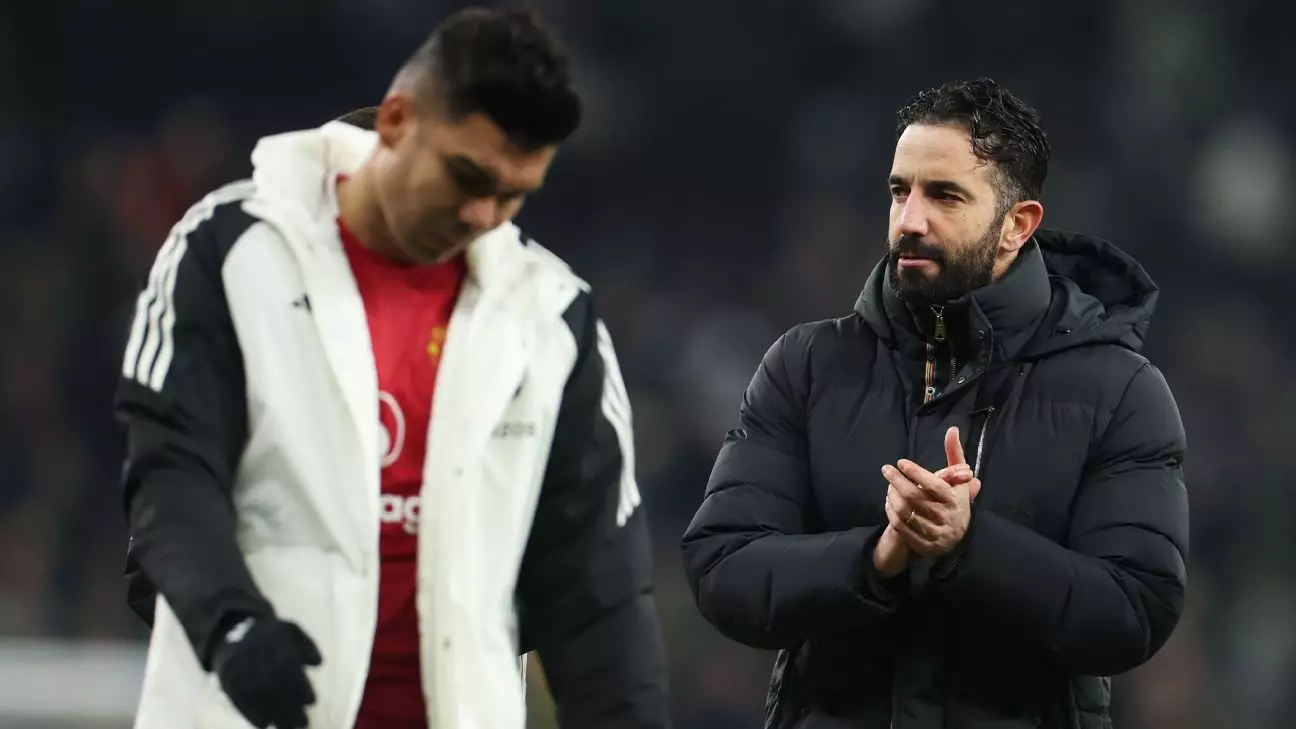In a season fraught with challenges, Manchester United’s new manager, Ruben Amorim, faces scrutiny following the team’s 1-0 loss to Tottenham Hotspur, marking their 12th defeat in the Premier League. Despite the disheartening performance that has left the club in 15th place, Amorim publicly asserts that his focus remains on the team’s performance rather than the precariousness of his position. His resilience is commendable, reflecting a commitment to his players and the larger goals of the club.
Amorim emphasizes, “I am not worried. I understand our fans, what the media think about it.” His words signal a determination to weather the storm rather than succumb to external pressures. While this mental fortitude is admirable, one has to question whether such confidence translates into effective tactical adjustments and results on the pitch.
The current squad’s injury crisis exacerbates United’s woes, especially with Amad Diallo reportedly out for the remainder of the season due to an ankle ligament injury. The manager’s limited options were evident during the match, as a significant portion of the bench comprised untested youth players. This lack of depth in the squad raises concerns about the long-term viability of Amorim’s strategies.
Moreover, the absence of key players puts immense pressure on the remaining squad members to perform consistently well. The lack of experience among substitutes can lead to uncalculated decisions during high-stakes moments, as was seen with Alejandro Garnacho’s missed chances against Spurs. “It was the difference of the game,” Amorim lamented, illustrating how a single opportunity can spell the difference between victory and defeat.
The match against Tottenham was a microcosm of United’s season thus far—close, competitive, yet ultimately disappointing. Despite creating opportunities, the inability to convert them highlights a significant issue with the team’s attacking efficiency. Amorim’s acknowledgment that his side had chances but failed to capitalize reflects deeper issues in both player confidence and strategic execution.
The Portuguese coach’s decision to hold off on substitutions during critical moments of the game also warrants scrutiny. With a squad eager to push for a goal, the hesitance to introduce fresh legs may have hindered their chance of equalizing. Amorim stated his caution in making changes, illustrating a delicate balance that is necessary in high-pressure scenarios. Yet, this decision raises a fundamental question: how far can a manager lean on a small core of players before stifling potential growth and resilience among youth?
As United prepares to face a resurgent Everton, the immediate future for Amorim’s side remains uncertain. The mounting challenges present both a hurdle and an opportunity; the potential for rebuilding the team’s competitive edge lies within their grasp, but it demands decisive action and clearer strategies. While Amorim shows unwavering commitment to his role, the organization’s response to current struggles will be critical in determining their trajectory moving forward.
Manchester United finds themselves at a crossroads, with both managerial stability and player potential hanging in the balance. The road ahead is undoubtedly fraught with challenges, but unearthing solutions and maintaining a focus on growth may soon return the club to its former glory.

Leave a Reply